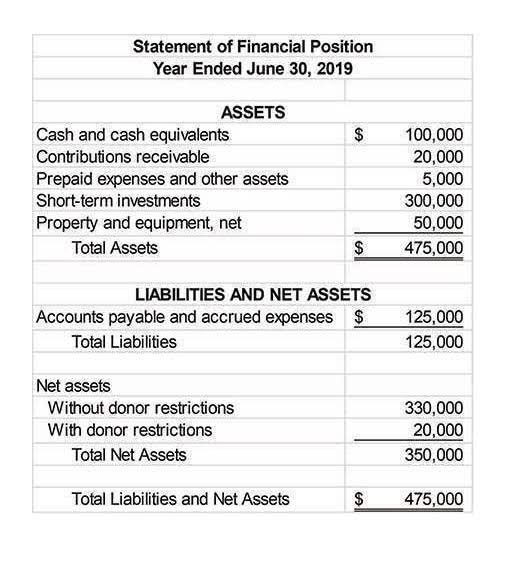
Investors, whether individual buyers or large institutions, seek transparency and accountability. Sound real estate accounting practices enhance investor confidence by providing clear financial visibility, demonstrating professionalism, and fostering trust. Understanding the financial health of real estate investments helps in identifying and mitigating risks. Whether it’s market fluctuations, unexpected expenses, or changes in regulatory environments, it provides the insights needed to proactively manage risks.
Work from anywhere with cloud-based software
This online tool makes real estate accounting easier with features like receipt tracking, automated reconciliation, and easy-to-understand metrics. With the advent of technology, cloud-based accounting software has revolutionized the way real estate professionals handle their finances. These tools not only streamline processes but also offer real-time insights, making managing your real estate accounting more efficient and less cumbersome.
Tips for Simplifying the Real Estate Accounting Process
This integration ensures that all data is synchronized, reducing manual data entry and the risk of errors. It streamlines workflows, making the entire property management accounting process more efficient. For real estate businesses, this integration means faster decision-making, improved tenant relations, and enhanced profitability.
Importance of Proper Accounting Practices
![]()
Now that you know the importance of strong real estate accounting and what to expect regarding trackable financial information, it’s time to take a closer look at best practices. If you’re looking for an affordable solution to your accounting needs, you may want to consider looking at our accounting templates. These templates greatly simplify the accounting process for small business owners and real estate investors by offering easy-to-understand layouts and a streamlined design. If you’re looking to make a major commitment to investing in real estate, consider purchasing rental properties. Rentals can offer steady cash flow as well as the possibility of appreciation over time, but they are one of the most labor-intensive methods of real estate investing.
Real Estate Specific Tax Issues
The eight edition of the real estate accounting services Guide 2023 is complementary to the edition issued in 2022. The new edition offers the updated part concerning the IFRS requirements. A monthly review can help identify areas where improvement may be necessary to make the most out of any situation related to one’s real estate investments or other activities. Through this practice, stakeholders can stay abreast of their profits and losses while increasing chances for improved performance over time. When compiling a full accounting report, many elements should be considered.
- Depreciation accounts for the reduction in value of buildings and improvements over time, offering tax advantages and affecting net income calculations.
- Additionally, setting up automated reminders can be a useful tool to help ensure that your books are kept up-to-date at all times.
- Managing tenant leases is foundational for property management firms.
- Moreover, regular training sessions can ensure that all team members understand their legal and financial implications.
- This allows you to clearly track your real estate-related income and expenses separately from your personal expenses.
Regular Review and Process Optimization
Any deductions, like for property damages, need to be accurately recorded. Clear protocols ensure that deposits are handled transparently and ethically. Moreover, regular training sessions can ensure that all team members understand their legal and financial implications. Real estate accounting delves deep into property-specific transactions.

Mixing personal and business finances
Real estate accounting is integral to property management, cash flow, and financial reporting. Accountants play a crucial role in the real estate industry by managing financial transactions, budgeting, and ensuring compliance with tax regulations for real estate professionals. They provide valuable insights into the financial health of real estate projects and help investors make informed decisions. Understanding real estate accounting is vital for managing your property investments effectively. It helps you track income and expenses, manage cash flow, and maximize profitability.


Many real estate investors are pleasantly surprised to learn that bookkeeping and accounting tasks can often be automated. The latest edition of our annual update highlights selected accounting and reporting developments that may be of interest to real estate entities. Like any other accounting practice, accounting in real estate is used for many reasons. One of the chief reasons is to provide an accurate and clear picture of the overall health of a business.
- This card will separate your business expenses from your personal charges, while keeping your monthly costs all in one place.
- Real estate accounting offers them tools to analyze property valuations, rental incomes, and market demand.
- Income statements provide a detailed view of a property’s revenues and expenses.
- It has affordable plans ranging from $3.99 to $9.99 per month (less during its current promotion).
- By understanding cash flow, an agent can identify potential issues before they become significant problems.
- Get $30 off a tax consultation with a licensed CPA or EA, and we’ll be sure to provide you with a robust, bespoke answer to whatever tax problems you may have.
Property owners require it for financial oversight, while real estate professionals leverage it for strategic planning. Real estate companies, on the other hand, use accounting to fuel organizational growth. The reconciliation process ensures that the bank account balance in your real estate accounting system is the same as what the bank shows. Each time a transaction occurs, the income or expense is recorded under the appropriate category and account. A good real estate accounting system also allows details for each transaction to be entered, so that it is easy to understand what the transaction is for.
